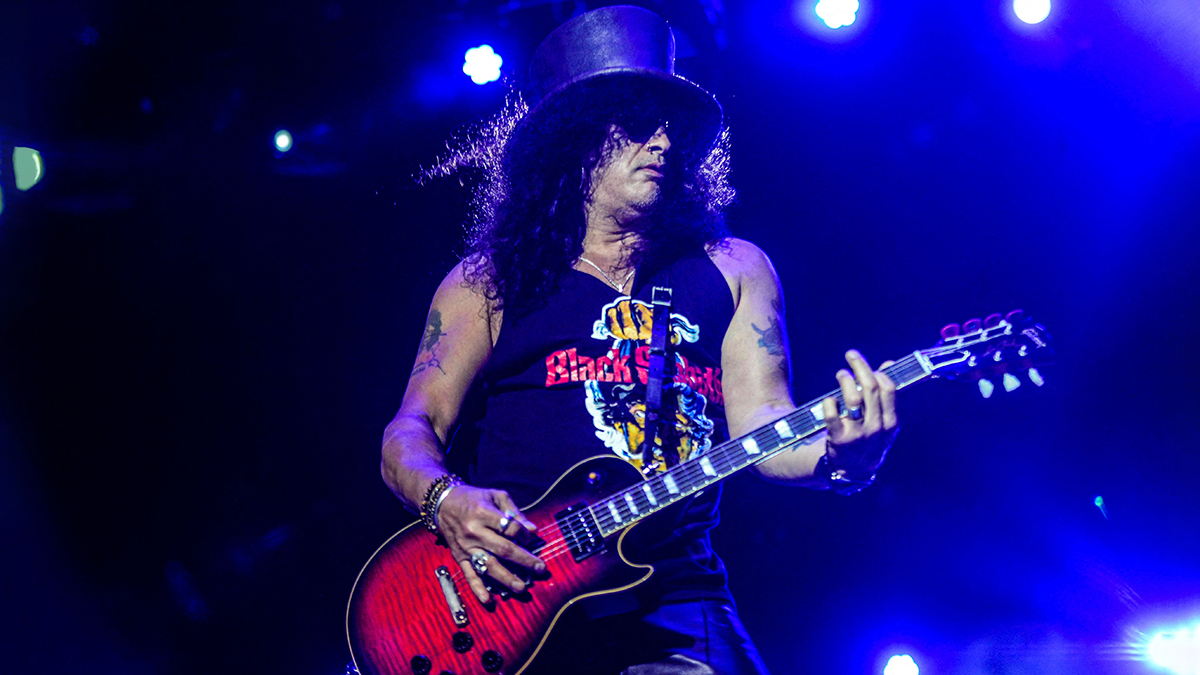
Earlier this month, UK’s Sky Arts channel aired its newest music documentary – a three-part series titled Greatest Guitar Riffs, which sought to explore some of the greatest feats of electric guitar riffery, with the help of some famous faces.
Notably, Tony Iommi, Nancy Wilson, Andy Summers and Brian May all featured throughout the series, and offered their own expert insights into some of history’s standout riff moments.
The debut of the documentary was marked with the arrival of an accompanying survey, which polled “UK music aficionados” in order to discover and rank the nation’s “favourite six-string riff of all time”.
As has been evidenced on multiple occasions, though – look no further than Rolling Stones’ recent Greatest Guitarist list for recent controversy – such processes are never an exact science, so it should come as no shock to hear that some of the results were, erm, rather surprising.
But of all the intriguing and debate-provoking results that came from the survey, there was one statistic that caught our eye above all others. Namely, according to the survey, the majority of music fans believe that the guitar riff is dying.
53% of those asked in the poll thought that the riff was indeed on its deathbed, with 74% of the sample believing such a phenomenon is “bad”. Why that latter stat isn’t 100%, we aren’t quite sure.
However, as is the case with many surveys, the credibility of the sentiments presented start to unravel slightly when the methodology is put under the microscope.
Get The Pick Newsletter
All the latest guitar news, interviews, lessons, reviews, deals and more, direct to your inbox!
For example, the Greatest Guitar Riffs poll only had a sample size of 2,000 – a relatively small pool of individuals to settle on, especially when looking to rank the best riffs “of all time” and determine the overall consensus on the fate of the humble riff.
To put that into perspective, Total Guitar and Guitar World’s own poll to determine the greatest riffs of all time received 38,000 responses. So, while around 1,060 people from Sky Arts’ survey may think the riff is dying, there is an overwhelming base of evidence to confirm otherwise, especially when one considers the caliber of contemporary riffsmiths.
For example, our own 50-strong list acknowledged the strong present and bright future that the riff faces, with readers choosing tracks from the likes of Polyphia, Opeth, Slipknot and other current acts for inclusion in the list.
While on the topic of Sky Arts’ list itself, and the actual rankings, those 2,000 people tasked with compiling the riff rankings once again came up with something that warrants closer inspection – not least because Sky Arts Director Phil Edgar-Jones called it “the definitive run down of the greatest riffs of all time”.
The contents of the list is pretty standard – Guns N’ Roses’ Sweet Child O’ Mine tops the pile, with Deep Purple’s Smoke on the Water, and Dire Straits’ Money for Nothing and Sultans of Swing all cropping up in the top five – but the placing of Prince’s Purple Rain in second spot will no doubt cause a stir.
An absolute classic of a chord progression, yes, but the second best guitar riff of all time? It’s a hard sell. Plus, it technically isn’t even Prince’s part: though the Purple One is credited as the song’s sole writer and did indeed come up with the progression, Wendy Melvoin arranged the song’s opening chord voicings as we know them today.
Other additions to the list include The Kinks' You Really Got Me, Aerosmith's Walk This Way, Lynyrd Skynyrd's Sweet Home Alabama and Michael Jackson's Beat It – the latter of which has been wrongly attributed to Eddie Van Halen, who was only drafted into record the song’s solo. The riff, as such, was performed by Steve Lukather.
Perhaps somewhat unsurprisingly given the content of the rankings – and the overarching sentiments – 30% thought the ‘70s was the “golden age” of the riff, while 21% advocated for the ‘80s. We’re yet to see a demographic breakdown of the sample itself, but that could go a long way in explaining how and why the survey reached the conclusion it did.
To be fair to Sky Arts’ survey participants, the rest of the top 22 is populated with the usual suspects. Outside the top 10, Jimi Hendrix’s Purple Haze, White Stripes’ Seven Nation Army and an AC/DC duo of Back in Black and Thunderstruck can all be found.
Fortunately, despite the rather morbid sentiment that the guitar riff was dying, the 2,000 survey participants did give the guitar its due when other music-related questions were fielded.
83% said they prefer music with guitars in, while 81% said a memorable guitar riff was vital to a good rock song. 58% also considered the electric guitar to be the most important instrument to make a song “truly great”.
Such observations were echoed by Sky Arts Director Phil Edgar-Jones, who noted, “Whether it’s the late, great Jimi Hendrix, the stalwarts such as Iron Maiden and Led Zeppelin, or the new artists coming through, rock n’ roll will never die. There’s new talent coming through constantly.”
Plus, rather contrary to the findings of the channel’s survey, he also noted that “the appetite for new tunes and sweet riffs is as great as it ever has been”.
So, what should we conclude from this 2,000-strong survey? Well, perhaps that remnant sentiments of the now-thoroughly debunked popular myth of “the death of the electric guitar” still remain, and that maybe the riff is becoming more of a niche art. Still, that might be a bit of a reach, because from where we're sitting, the riff is looking as healthy as ever – and can be heard across genres.
Greatest Guitar Riffs is available to watch in the UK now. Head over to Sky Arts for more information, and to see the survey's ranking of the greatest guitarists of all time.

Matt is the GuitarWorld.com News Editor. He has a Masters in the guitar, a degree in history, and has spent the last 16 years playing everything from blues and jazz to indie and pop. When he’s not combining his passion for writing and music during his day job, Matt records for a number of UK-based bands and songwriters as a session musician.













